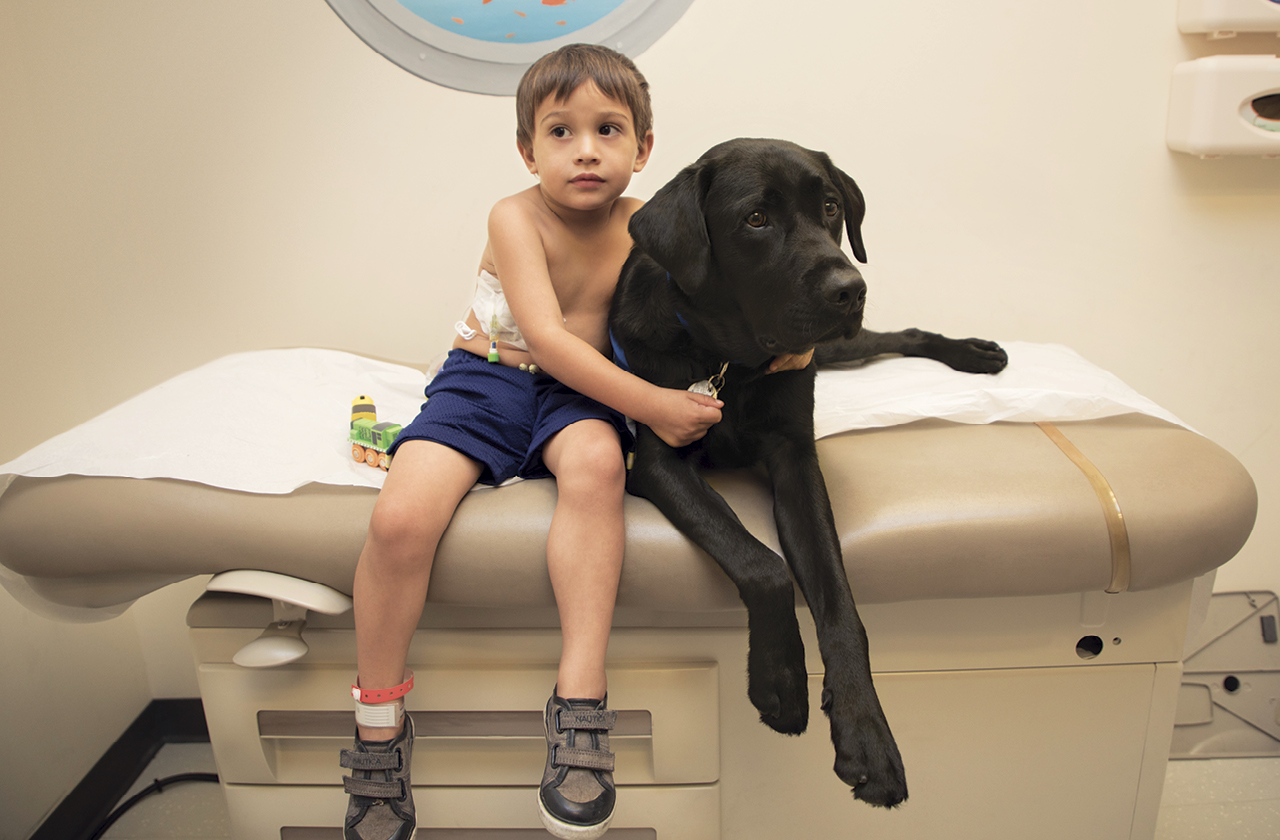Meet Huggie
First “facility dog” joins Cancer Center
WHO has four legs, wears a black coat and works alongside medical staff? Huggie — the first-ever facility dog at UC Davis Health. The 2-year-old Labrador retriever supports children receiving treatments in the cancer center’s Pediatric Infusion Center.
Huggie works with his foster mom and child life specialist, Jenny Belke, Monday through Friday to normalize and motivate pediatric patients and reduce any fear, stress, anxiety or pain they may be feeling.
“Patients and families deserve tailored care,” says pediatric oncologist Marcio Malogolowkin. “Each child has a different need, and I think Huggie is one more sign of our commitment to caring for patients’ individual needs.”
For 18 months before he could report for duty, Huggie lived with a volunteer “puppy raiser” for obedience training, socialization and basic care needs. He returned to Canine Companions for Independence for six months of intense professional training, and mastered more than 40 commands before attending the organization’s “Team Training.” He was then matched with Belke and received his doggy diploma. Only one in four puppies will meet the criteria to become a facility dog, according to Canine Companions.
Though he’s cute and cuddly, Huggie serves a therapeutic purpose for cancer patients and their families.
Cindy Bey watched her 12-year-old son Alex light up upon seeing Huggie during a weekly treatment. Alex was diagnosed with a brain stem tumor that temporarily paralyzed the right side of his body, and made speaking and walking difficult. Adding to the trauma is the family’s two-and-a-half hour commute from Red Bluff each week for care.
“When we got here Alex didn’t want to be here. He was depressed and started crying,” Bey says. “When Jenny asked if he wanted her to bring Huggie over, he stopped crying and had a big smile on his face.”
Huggie’s presence at the cancer center required thoughtful planning. With Jean Wiedeman, a pediatric infectious disease specialist, Diana Sundberg, child life and creative arts therapy manager, developed a detailed protocol to ensure patient safety. Huggie requires supervision by a UC Davis Health representative at all times, weekly baths, a regularly laundered bed, leash and vest, and veterinary visits.
Sundberg, who manages the child life and creative arts therapy team, says she hopes to have three or four dogs placed at the health system.
“When you’re not feeling well, caring for something else can help take the focus off of your pain,” she says. “Children have the ability to build relationships with the dogs, which can provide a sense of familiarity and comfort when they’re in the hospital.”


